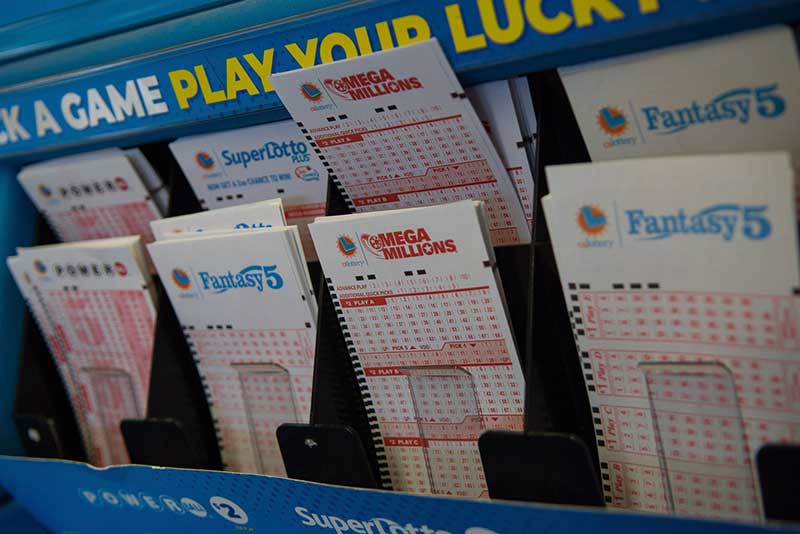If you’re considering running a lottery, it’s essential to understand the Gambling Commission Lottery Rules. These rules are designed to ensure fair play and protect players from potential harm. By following these regulations, you can create a safe and responsible gaming environment for all participants.
In this guide, we’ll explore the ins and outs of the Gambling Commission Lottery Rules and highlight the key provisions and requirements that you need to know. From understanding the regulations to complying with licensing guidelines, we’ll cover all the essential information you need to know to run a successful and legitimate lottery.
Key Takeaways
- The Gambling Commission Lottery Rules are designed to ensure fair and transparent lottery operations.
- It’s crucial to understand the specific regulations governing lotteries to ensure compliance and avoid legal issues.
- These regulations cover various aspects of lottery operations, from ticket sales to advertising guidelines and player protection measures.
- Lottery operators must obtain a license and adhere to ongoing requirements and responsibilities to maintain it.
- Complying with the Gambling Commission’s lottery policies is essential to create a safe and responsible gaming environment.
Understanding Gambling Commission Regulations
Lotteries are regulated by the Gambling Commission in the UK, and operators must comply with their regulations to ensure fair and transparent operation. It’s important to understand these regulations to avoid penalties or legal issues. Let’s take a closer look at the key provisions and requirements set forth by the commission.
Key Provisions of Gambling Commission Regulations
The Gambling Commission has established several key provisions that apply to lottery operations, including:
- The lottery must be for charitable or good causes
- Only licensed operators can run a lottery
- Lottery prizes must be advertised before the draw
- The selling of tickets to under 16s is prohibited
- Proceeds must go to charitable or good causes
These provisions ensure that lotteries are operated with integrity and transparency, and that they benefit charitable and good causes.
Requirements for Lottery Operators
To comply with the regulations set forth by the Gambling Commission, lottery operators must:
- Obtain a license from the Gambling Commission
- Adhere to advertising guidelines for the lottery
- Ensure that tickets are sold fairly and accurately
- Pay out prizes in a timely and fair manner
- Maintain accurate records of ticket sales, prize draws, and charity donations
Operators must also ensure that the lottery is operated in a socially responsible manner, taking steps to prevent problem gambling and protect vulnerable individuals.
Compliance with Regulations
Lottery operators must take the necessary steps to comply with the Gambling Commission regulations. Failure to do so can result in penalties and legal issues. By complying with the regulations, operators can ensure the integrity of the lottery and maintain the trust of their players.
“The Gambling Commission has established strict regulations to ensure that lotteries are operated with integrity and transparency, and that they benefit charitable and good causes.”
In the next section, we will explore the lottery rules and regulations established by the Gambling Commission in more detail, providing a comprehensive guide for lottery operators.
Lottery Rules and Regulations Explained
Lotteries are subject to specific rules and regulations established by the Gambling Commission. These regulations cover all aspects of lottery operations, including ticket sales and prize distribution, advertising guidelines, and player protection measures.
It is essential for lottery operators to understand and comply with these rules and regulations to ensure fair and transparent gaming environments.
Ticket Sales and Prize Distribution
Under the Gambling Commission’s lottery commission guidelines, lottery operators must ensure that ticket sales are conducted in a fair and transparent manner. This includes providing clear information about the tickets’ price, the odds of winning, and any restrictions on eligibility to play.
Prize distribution must also comply with regulations, and the amount of prizes offered must be clearly stated. Lottery operators must ensure that prize winners are notified within the specified time frame and provide information on how to claim their prize.
Advertising Guidelines
Lottery advertising must adhere to specific guidelines established by the Gambling Commission. These guidelines aim to ensure that such advertising is conducted in a socially responsible manner and does not mislead or exploit vulnerable individuals.
Advertising must not use language or imagery that could condone or encourage excessive gambling or portray gambling as a solution to financial problems. Additionally, advertising must not target vulnerable individuals or minors, and the risk of addiction must be communicated clearly in all advertising material.
Player Protection Measures
Lottery operators must take steps to protect their players, including implementing measures to prevent underage gambling, promoting responsible gambling, and providing players with the tools necessary to control their gambling habits.
These measures include ensuring that players can set limits on their spending, offering self-exclusion options, and providing access to professional support services for those affected by problem gambling.
“By enforcing strict rules and regulations, the Gambling Commission aims to create a safe and fair environment for lottery players and operators alike.”
Understanding Lottery Licensing Regulations
If you’re looking to operate a lottery, you need to make sure you comply with the Gambling Commission’s lottery licensing regulations. Obtaining a license is an essential part of running a legal lottery operation and ensuring a fair gaming environment.
Lottery licensing regulations cover a range of requirements, from ensuring the integrity of the lottery to protecting players’ interests. Let’s take a closer look at what these regulations entail:
| Requirement | Description |
|---|---|
| Age verification | Operators must ensure that players are of legal age to participate in the lottery. |
| Fairness and transparency | Operators must ensure that the lottery is conducted fairly and transparently, with clear rules and accurate information about the odds of winning. |
| Player protection | Operators must have measures in place to protect players from problem gambling, including self-exclusion options and responsible gambling messaging. |
| Secure financial transactions | Operators must ensure that all financial transactions related to the lottery are secure and protected from fraud or theft. |
| Insurance requirements | Operators must have the appropriate insurance coverage to protect players in the event of a problem or dispute. |
These are just a few of the key requirements that lottery operators must adhere to in order to obtain and maintain a license. Failure to comply with these regulations can result in penalties or even legal action.
It’s essential to understand the licensing regulations associated with lottery operations to ensure that you are operating legally, ethically, and in compliance with the Gambling Commission’s policies.

Complying with Gambling Commission Lottery Policies
Lottery operators must adhere to the Gambling Commission’s lottery policies to ensure compliance with the regulations and requirements of running a lottery under these rules. The policies cover a range of areas, including player protection, responsible gambling practices, and advertising guidelines.
One of the key policies of the Gambling Commission is to ensure that lotteries are conducted in a fair and transparent manner. Lottery operators must provide clear and accurate information about the prizes, odds, and rules of the game. They must also ensure that the selection of winners is random and unbiased.
Another vital aspect of compliance with lottery policies is player protection. Lottery operators must take measures to prevent underage gambling, promote responsible gambling practices, and provide support to players who may be experiencing problems with gambling.
Lottery operators must also adhere to specific advertising guidelines established by the Gambling Commission. Advertising must be truthful, not misleading, and not target vulnerable individuals or minors. Operators must also ensure that their advertising complies with advertising codes and regulations.
Compliance with the Gambling Commission’s lottery policies is essential to maintain the integrity of the lottery industry and protect both players and operators. Non-compliance can result in penalties, fines, or even the revocation of a lottery license.
“As a lottery operator, it’s our responsibility to ensure that we comply with all of the Gambling Commission’s lottery policies. We take this matter seriously to provide a fair and transparent gaming environment for our customers.”
Understanding Gambling Commission Licensing Guidelines
Obtaining a lottery license from the Gambling Commission is a crucial requirement for any operator looking to run a compliant and transparent lottery. However, it is essential to understand the specific guidelines and requirements set forth by the commission to ensure your license remains valid and in good standing.
The licensing guidelines established by the Gambling Commission are designed to promote responsible and fair lottery operations and protect players from potential harm. In order to obtain a license, operators must meet a set of criteria, including:
- Being based in the United Kingdom or European Economic Area (EEA)
- Having no criminal convictions or financial issues that may impact lottery operations
- Providing a comprehensive business plan that outlines all aspects of the lottery, including marketing and advertising strategies, prize distribution, and player protection measures
- Having appropriate financial backing to cover any potential prize payouts
Once a license has been obtained, the license holder must comply with ongoing requirements and responsibilities, which include:
- Maintaining accurate records of all lottery operations
- Submitting annual reports and financial statements to the commission
- Adhering to advertising and marketing guidelines set forth by the commission
- Conducting regular risk assessments and implementing appropriate player protection measures
Failure to comply with these guidelines can result in penalties, fines, or even revocation of the license. Therefore, it is crucial to stay up-to-date with any changes or updates to the licensing guidelines and ensure ongoing compliance with all requirements established by the Gambling Commission.
In summary, understanding and adhering to the licensing guidelines established by the Gambling Commission is essential for any operator looking to run a successful and compliant lottery. By meeting the criteria for obtaining a license and maintaining ongoing compliance with all requirements, operators can ensure transparency, fairness, and player protection in their lottery operations.
Conclusion
In conclusion, understanding and complying with the Gambling Commission Lottery Rules is crucial for anyone involved in operating a lottery. The regulations set out by the commission are designed to ensure fair and transparent gaming, protect players, and prevent fraudulent practices.
Lottery regulations and requirements can be complex and extensive, but they are essential for maintaining a safe and regulated gaming environment. It is the responsibility of lottery operators to familiarize themselves with these rules and comply with them at all times.
From obtaining a license to adhering to advertising guidelines and player protection measures, complying with the Gambling Commission’s lottery policies requires ongoing effort and attention. Failing to comply with these regulations can result in significant penalties or even the loss of a license.
By staying informed and up-to-date with the latest lottery regulations and requirements, lottery operators can ensure the continued success of their operations and the protection of their players. We hope this guide has provided a comprehensive overview of the key aspects of the Gambling Commission Lottery Rules and their importance to a fair and regulated gaming environment.
FAQ
What is the Gambling Commission?
The Gambling Commission is a regulatory body in charge of overseeing gambling activities in the United Kingdom. It ensures that lotteries and other gambling operations are conducted fairly, transparently, and in compliance with the law.
Why is it important to understand Gambling Commission Lottery Rules?
Understanding Gambling Commission Lottery Rules is crucial for lottery operators to ensure compliance with the regulations set forth by the commission. Failure to adhere to these rules can result in penalties, legal issues, and potential loss of license.
What do Gambling Commission regulations cover?
Gambling Commission regulations cover various aspects of lottery operations, including ticket sales, prize distribution, advertising guidelines, and player protection measures. These regulations aim to maintain integrity, fairness, and public trust in the lottery industry.
How do I obtain a lottery license?
The process of obtaining a lottery license involves submitting an application to the Gambling Commission, providing necessary documentation, and meeting specific criteria outlined in the licensing guidelines. Once approved, the license holder must comply with ongoing requirements to maintain the license.
What happens if I don’t comply with Gambling Commission Lottery Policies?
Non-compliance with Gambling Commission Lottery Policies can lead to penalties, legal consequences, and potential revocation of the lottery license. It is essential for lottery operators to understand and adhere to these policies to avoid such issues.











